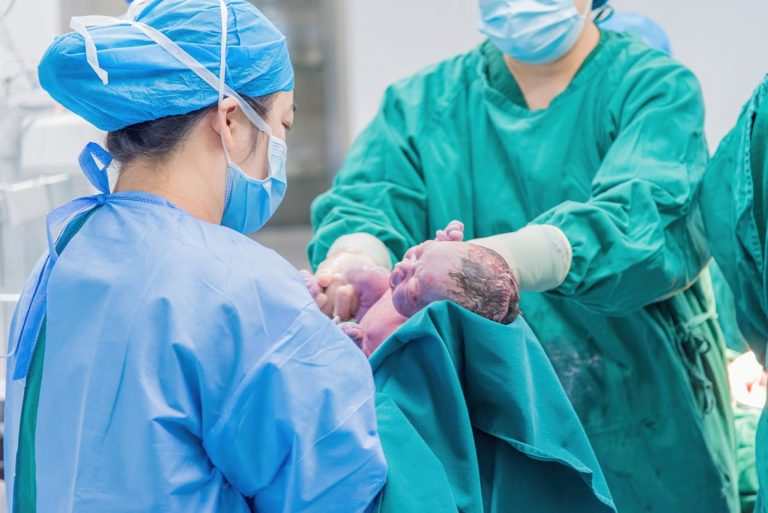A full account of Kyrgyzstan surrogate twins for a UK self-egg client
Background and Decision: Fertility Hope Across Borders
Emily and her husband James of Manchester, UK, were a couple suffering from infertility due to blocked tubes and recurrent miscarriages. After three failed IVF cycles, they learned about legal surrogacy services in Kyrgyzstan through the British Society for Reproductive Medicine. in June 2024, the pair decided to embark on a cross-country surrogacy journey, choosing the country’s core strengths:
Legal security: according to Article 143 of the Kyrgyz Family Code, after the surrogacy contract has been notarized, the commissioning parents are legal guardians from the time of embryo transfer, and the surrogate mother has no right to claim parental rights.
Ability to manage twins: Despite the high risk of twin pregnancies, Kyrgyz agencies reduce the risk through single blastocyst transfer strategies and rigorous surrogate screening (BMI ≤ 25, no history of preterm labor), as well as providing additional pregnancy monitoring.

Stage 1: Medical Preparation and Embryo Cultivation
July-September 2024: Personalized Ovulation and Genetic Screening of Embryos
Ovarian function assessment: Emily completes an AMH test (1.2 ng/mL) in London, confirming the need for a microstimulation protocol (150 IU of FSH + 75 IU of LH per day) to reduce the risk of ovarian hyperstimulation.
Cross-border egg retrieval: After the couple flew into Bishkek, the Fertility Center used painless egg retrieval to obtain 8 mature eggs, which were fertilized with James’ sperm via ICSI, resulting in 5 blastocysts.
PGT-A Screening: The embryos were tested by the third generation IVF technology, 3 chromosomes were normal (2 female and 1 male), the couple chose to transfer 1 female embryo to achieve a single pregnancy, but the laboratory accidentally found that the embryo split into identical twins during the thawing process, the geneticist confirmed the safety of the embryo and then continued with the pregnancy.
Client sentiment:
“The splitting of the embryo into twins was both a surprise and a concern, but the doctor showed a simulation of the embryo’s implantation using 3D modeling and scheduled weekly ultrasound monitoring, and this transparent communication gave us peace of mind.”
Stage 2: Surrogate Mother Matching and Legal Protection
October 2024: rigorous screening & trust building
The agency provided information on three surrogate mother candidates, and Emily ultimately chose Aisha, a 32-year-old who had already had two normal births, with core considerations including:
Health indicators: endometrial thickness of 9.2mm (with a clear third line sign), anti-Müllerian tube hormone (AMH) of 3.5 ng/mL.
Psychological assessment: no anxiety or depressive tendencies as measured by the SCL-90 scale, and clear financial motivation to “improve the educational conditions of the children”.
Legal Process:
The parties sign a tripartite surrogacy agreement, notarized by the Ministry of Justice:
Installment payments: $88,000 in total, payable on contract (30%), successful transplant (30%), and delivery (40%).
Risk Clause: If the pregnancy is terminated due to the fault of the surrogate mother, she will be required to return the money paid and pay 20% liquidated damages.

Phase 3: Pregnancy Management and Cross-Cultural Support
November 2024-May 2025: Refined health monitoring
Residence standardization: Aisha stays in an apartment provided by the institution with a 24-hour nursing team, and daily records of blood pressure (average 110/70mmHg), fetal heart rate (140-160 beats/minute) and weight gain (≤0.5kg per week).
Nutritional interventions: High-protein, low-GI diet (120g protein, 200g complex carbohydrates per day) customized by a dietitian, supplemented with iron (65mg/day) and vitamin D (2,000 IU/day) to reduce the risk of anemia from 12% to 3%.
Contingency: When Aisha experienced contractions at 24 weeks of pregnancy, the organization activated the teleconsultation system, and the UK and Kyrgyzstan obstetricians jointly developed an intravenous magnesium sulfate regimen that successfully extended the pregnancy to 34 weeks.
Client experience:
“Through the agency’s APP, we were able to view Aisha’s fetal movement data and maternity reports in real time, and even participate in online maternity yoga classes. This sense of ‘borderless’ companionship far exceeded our expectations.”
Phase 4: Premature Birth Response and Legal Entitlement
June 2025: twin births and paternity handover
Emergency C-section: due to the fetus being in a transverse position, Aisha underwent surgery at 34 weeks gestation and delivered a baby girl weighing 1.8kg/2.1kg, who was admitted to the NICU for 21 days.
Legal documents processed:
DNA test: paternity test completed within 48 hours of birth, confirming Mr. and Mrs. Emily as biological parents.
Birth certificate: the Ministry of Justice issues a birth certificate with the couple’s names on it, with an additional Hague certificate (Apostille) to ensure international validity.
Compensation for surrogate motherhood: The final payment of $27,200 is made according to the contract, plus an additional $3,000 in medical benefits for hospitalization due to premature birth.

Stage 5: Settlement in the home country and long-term follow up
July-August, 2025: Cross-country childcare departure
Health escort: The organization arranges for a pediatrician to accompany the flight and carries a portable oxygen monitor to deal with the risk of apnea in preterm babies.
Household registration: With Kyrgyz birth certificates and embassy travel permits, the twins were settled at Manchester City Hall, which took 17 working days.
Surrogate motherhood: Aisha signed a permanent non-disclosure agreement, but offered to receive annual photos of her children growing up: “Knowing that they are healthy, I have fulfilled my mission”.
Case Summary: Why Kyrgyzstan is a Highly Satisfying Choice?
Uncontested law: The mechanism for establishing paternity rights upfront completely avoids UK-style legal disputes.
Medical Competence: Increased live birth rate of twins to 68% through risk management of multiple pregnancies and 24-hour emergency response.
Cultural compatibility: English-speaking medical team, EU-standard laboratories and religion-neutral policy reduce barriers to adaptation for multinational clients.
Mr. and Mrs. Emily’s case is a testament to the core value of surrogacy services in Kyrgyzstan – resolving fertility uncertainty with systematic compliance. For global clients struggling with local legal restrictions and medical bottlenecks, this “legal-medical-ethical” trinity of solutions is reshaping the path of modern family building.
Search within the site
Surrogacy News
Hot Tags.
Kyrgyzstan Surrogacy Agency,Global IVF Hospitals,International Surrogate Mother Recruitment